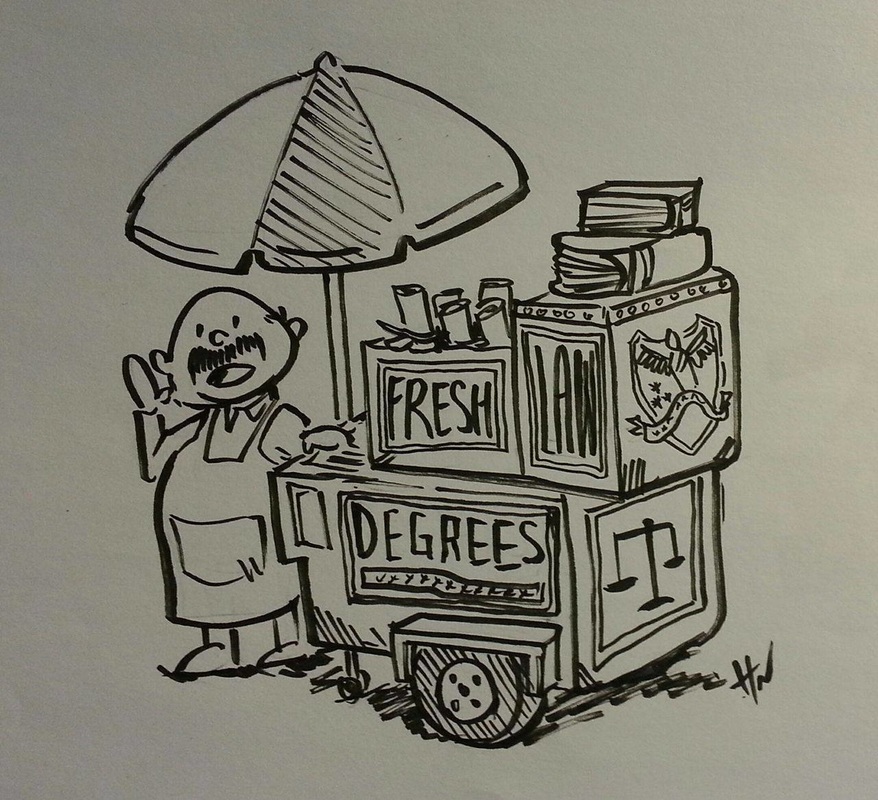|
DUNCAN WALLACE Volume 10, Issue 7 Last week De Minimis was going to publish an article which began like this: “Melbourne Law School (MLS) has recently embarked on a marketing campaign whereby students and faculty members are profiled on the law school’s official Facebook and Instagram posts. The posts consist of a photo of the student or faculty member, a brief quote about their experience at the law school, and a tagline encouraging prospective students to register for the LSAT. The campaign is called #HumansofMelbourneLawSchool.” The rest of the article was written like a contracts hypothetical, and asked readers to advise a hypothetical individual called Victor about whether he had been misled by one of the #HumansofMelbourneLawSchool profiles. Specifically, did he have a claim against the University of Melbourne for misleading and deceptive conduct under section 18 of the Australian Consumer Law? We didn’t end up publishing the article because we were advised there could be an inference drawn that the person in the #HumansofMelbourneLawSchool profile was engaged in, or an accessory to, misleading or deceptive conduct. The inference, we were told, could possibly have personal or professional consequences for that person. I am glad that that was pointed out to us. It would be terrible to implicate an innocent person in such conduct with the potential that it would affect their job prospects. But it made me think. What if the law school marketing department had engaged in misleading and deceptive conduct, and the person they profiled was deemed to be an accessory to the conduct? I quite like the #HumansofMelbourneLawSchool profiles. But the fact that they’re used by the marketing department to sell a $100,000 degree to prospective students (who the university calls “customers” in its internal policy documents) leaves a bitter taste in the mouth.
The students profiled are being used as instruments to sell the JD. They’re used as a marketing tool. And, as was pointed out to us, in doing so those students were put at risk of being implicated in any misconduct the marketing department engaged in. It is right, after all, that the marketing of a $100,000 degree should have close attention paid to it. Last year, for example, ten private training colleges were found by the ACCC to have engaged in “unconscionable’’ sales tactics, with one private college ordered to repay $57 million in taxpayer funding. Of course, the University of Melbourne cannot be said to be implicated in anything quite as bad, but since the deregulation of tertiary education, university sales tactics have become increasingly aggressive. The idea that there could be legal ramifications to such tactics is not entirely far-fetched. It is irresponsible to use law school students and staff extensively in marketing campaigns. Using the personal stories of individuals increases the likelihood that they will be found personally liable for the conduct of the marketing department. There is also a second, more insidious effect. Using staff and students in marketing campaigns means that the conduct of the marketing department is not open to critique or analysis in the public sphere. We are stopped from saying anything, for fear it will harm our peers (especially at a time when mental health in the law school is not great). It gives the marketing department a certain immunity from criticism. This is something we need to be vigilant about. The university recently tried to make freedom of academic expression subject to university profitability. A logical consequence of such a policy is that the undermining of university marketing campaigns with critique would be disallowed: critique might make a campaign less successful from a profitability perspective. This is dangerous. The marketing department cannot be allowed to operate with immunity from criticism and so without restraint. Judging by recent developments, if we stay quiet this is what will occur. Duncan Wallace is a third-year JD student and Chief Editor of De Minimis The rest of this week's issue: More articles like this:
LizardKing
8/9/2016 08:36:11 am
#lizardpeopleofmelbournelawschool, on the other hand, is 100% truthful and carries no risk of misleading anyone Comments are closed.
|
Archives
October 2022
|



